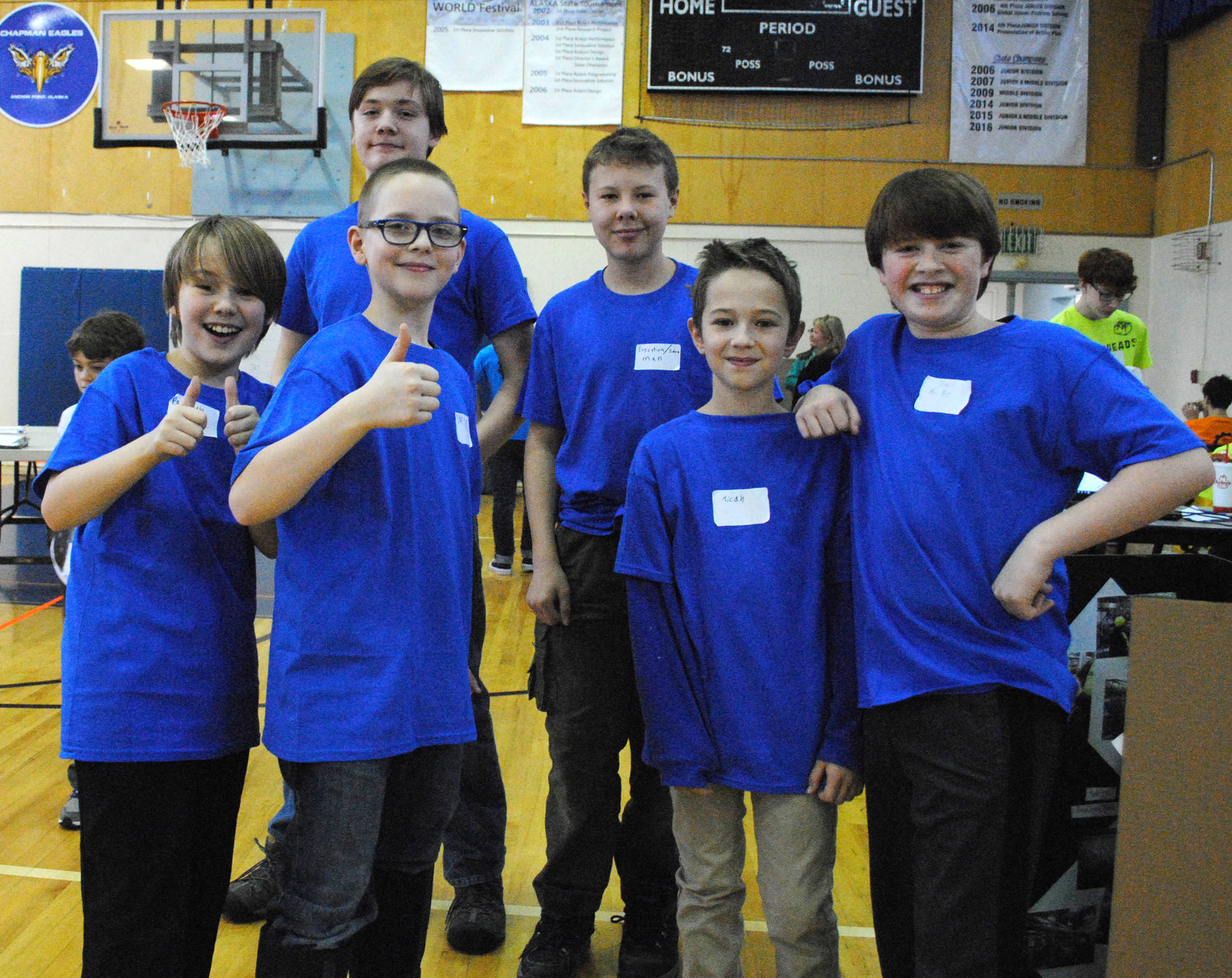Students from across the Kenai Peninsula took on a big challenge, innovating the field of hydrodynamics, and they did it with LEGOs.
This Saturday, the First Lego League challenge was held at Aurora Borealis Charter School and brought together eight teams from across the district to explore all the different aspects of water such as finding it, transporting it, using it and disposing it.. Each year, the competition challenges students to address an issue by imaginatively applying science, technology, engineering and math and utilizing LEGOs. This year’s challenge required the students to build an autonomous LEGO robot that could construct and repair broken water pipes, transport inspection gear, provide flowing water and deliver a water purification system to an area with need.
Surrounding giant wooden tables with a small world recreated on them, the teams watched their robots maneuver through the obstacles.
“There are certain missions,” said Anniya Otis, of the Aurora Borealis team. “This one that we’re trying to do right now is replacing a broken pipe. You program the robot to pick up the pipe and put a new pipe where it used to be.”
The competition isn’t just about the robots, though. Teams were also challenged with identifying a problem in the ways that people interact with water, design an innovative solution for that problem and to share their solution.
“Well, we went to the hatchery because they were putting 20 tons of fish waste into Cook Inlet every year,” said Otis’s teammate, Maya Montague. “We thought they could do aquaponics instead, which is using fish waste to grow plants.”
This research project joins the robot programming and design, the robot’s performance at the table and the team’s overall core values as the major components of the competition.
“There’s four parts… all of which are equally important,” said Suzanne Phillips, who helped organize the event with Brian Beard, the tournament director. “I think one of the biggest things in the competition is just perseverance because you can try and try and try, and things will work but then it’ll just fall apart.”
Phillips said that the core values component, which judges the students on how well they work together as a team, also plays a large role in the team’s individual successes.
“Working together and encouraging each other in spite of the difficulties is something that they get better and more confident in each year,” Phillips said. “… It’s not just the bot. You have to be willing to step back and say, ‘yeah, your thing does work better than mine,’ or ‘you are better than me at that.’ It’s really just about being able to be a strong team.”
This year’s strongest team was Aqua Intelligence from Kenai home schools, who came away with first prize in Core Values.
“Our pamphlet was hard to come to because we had a lot of different ideas among the group of us,” and in the end finding our actual solution was the hardest,” said Micah Sevast of Aqua Intelligence.
Teams were also award prizes in the other three categories. West Homer Middle School’s Brick Heads won the project award, which recognizes a team that excels in the research, solution and presentation categories. The Moose Pass Moosebots took home the robot design award, which recognizes the team that excels across mechanical design, programming and strategy and innovation.
The Aurora Borealis Polar Bears took home the robot game award, which goes to the team that scores the most points during the robot demonstration. They also won the overall grand champion award for embodying the full First LEGO League experience.
Reach Kat Sorensen at kat.sorensen@peninsulaclarion.com

